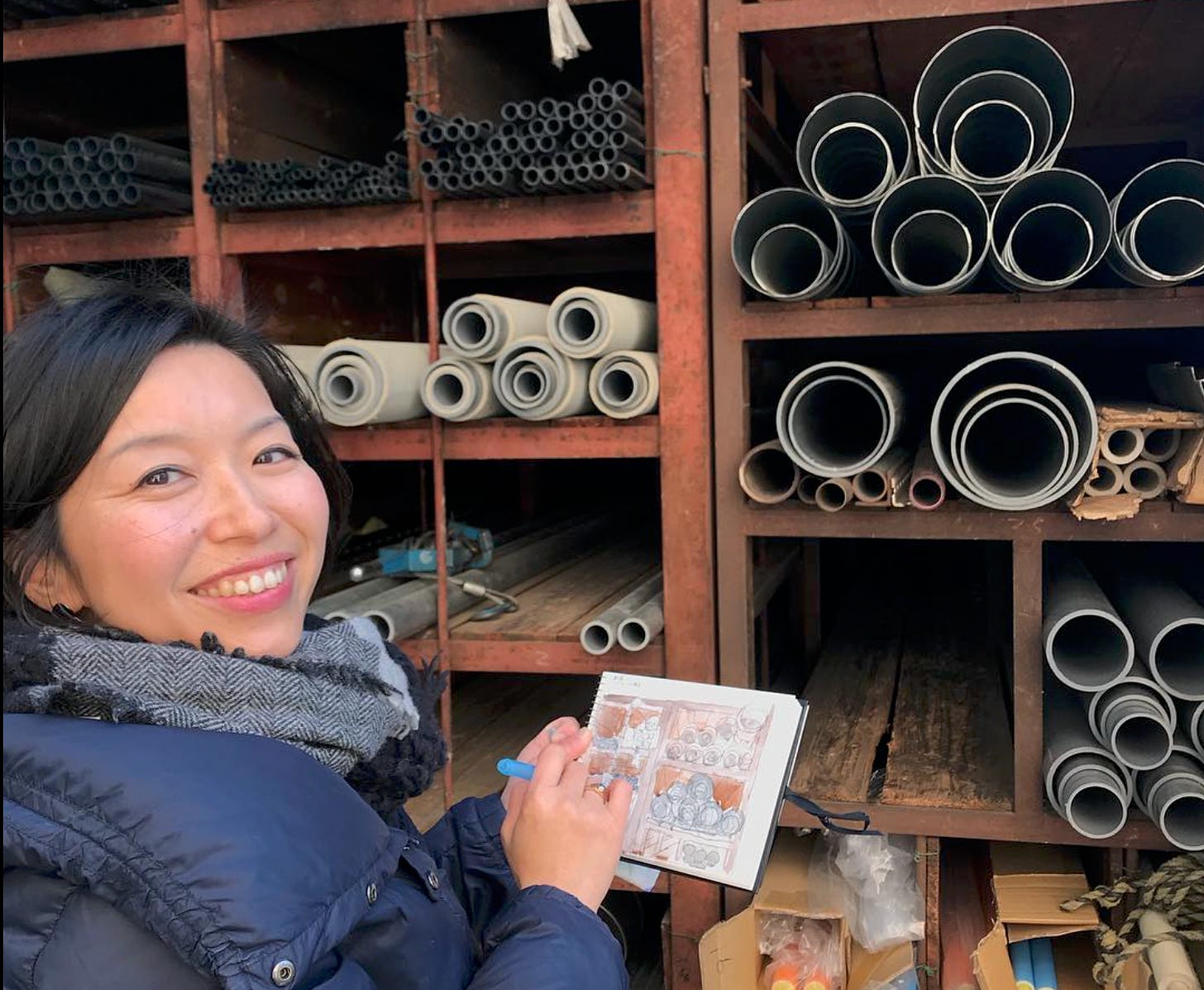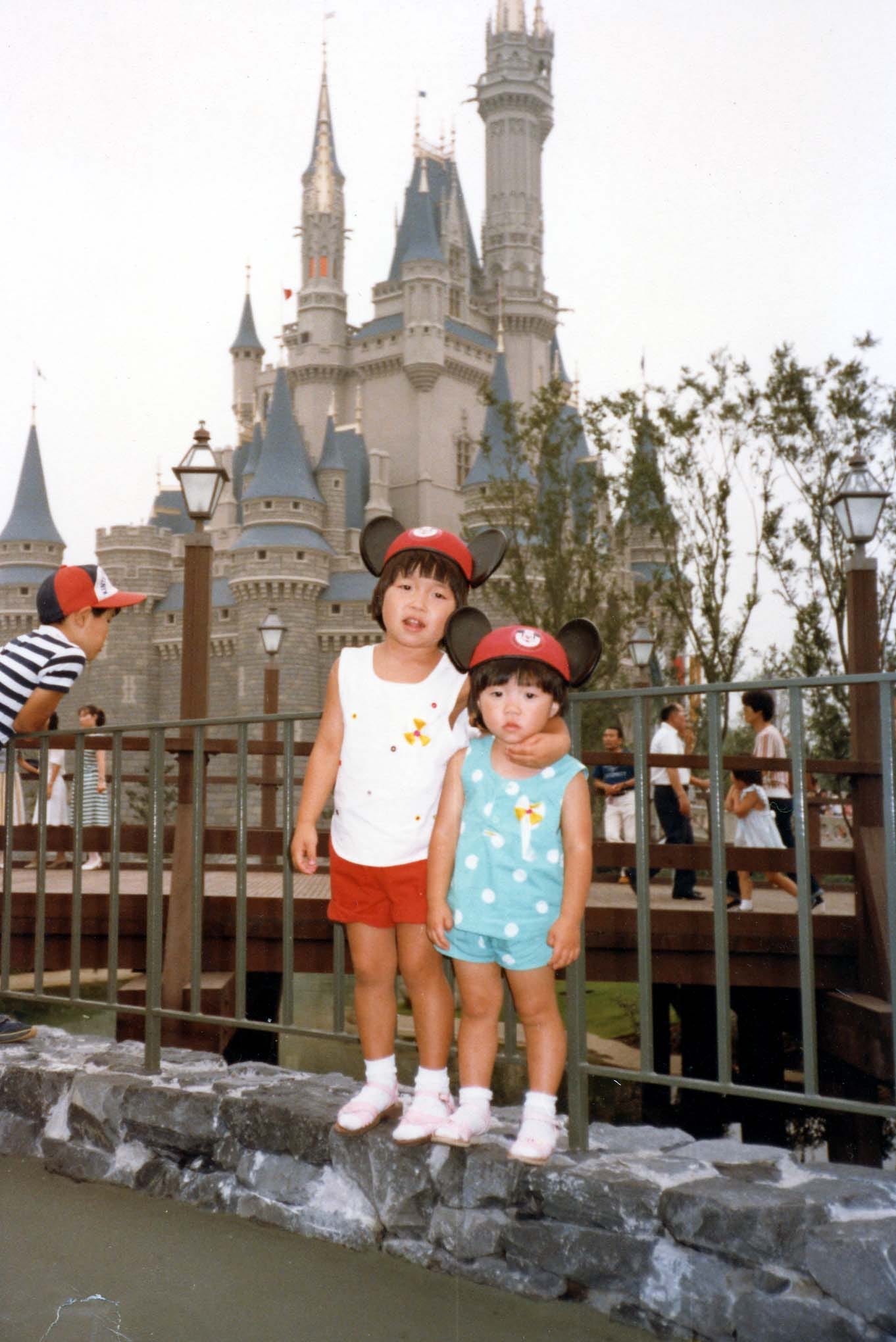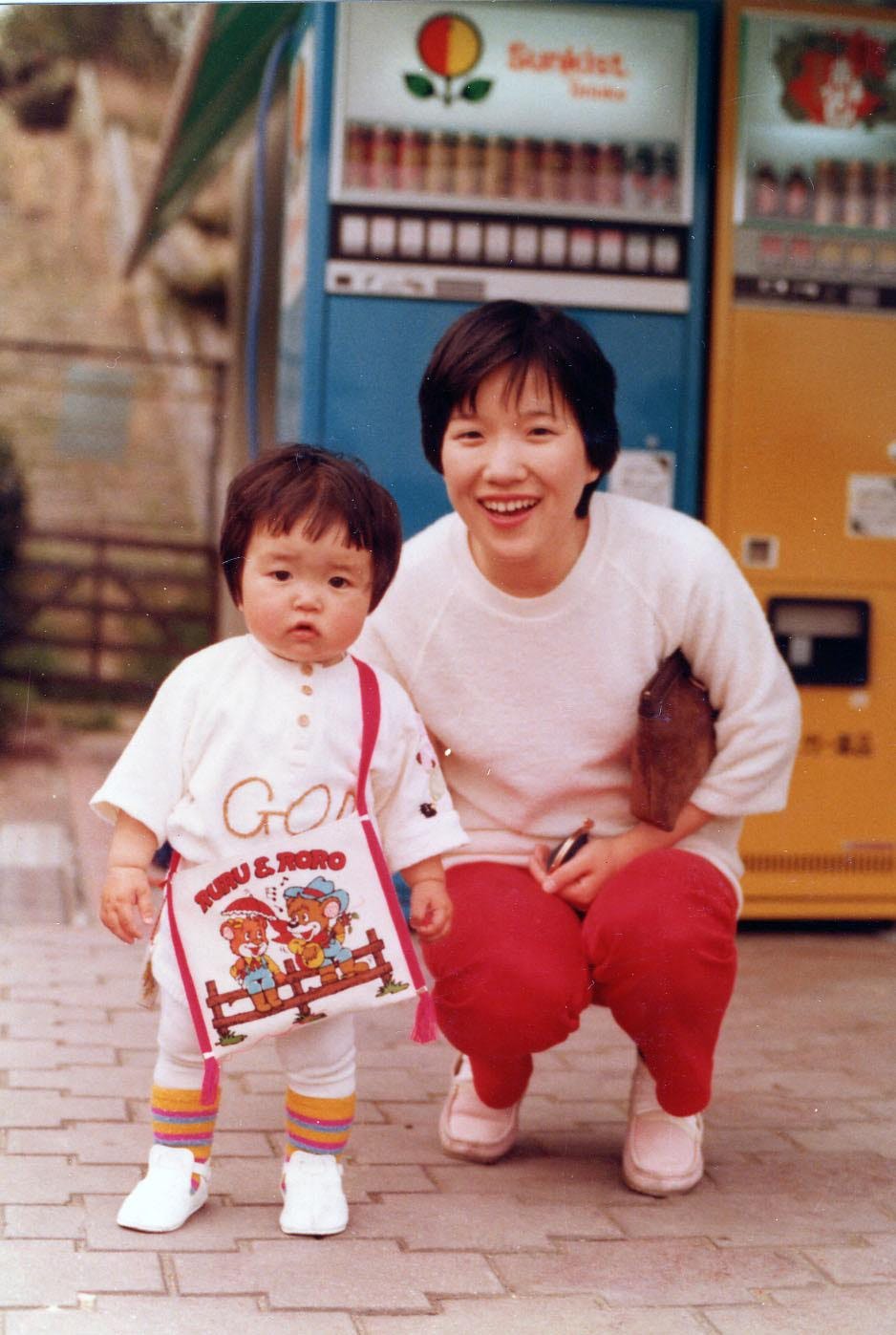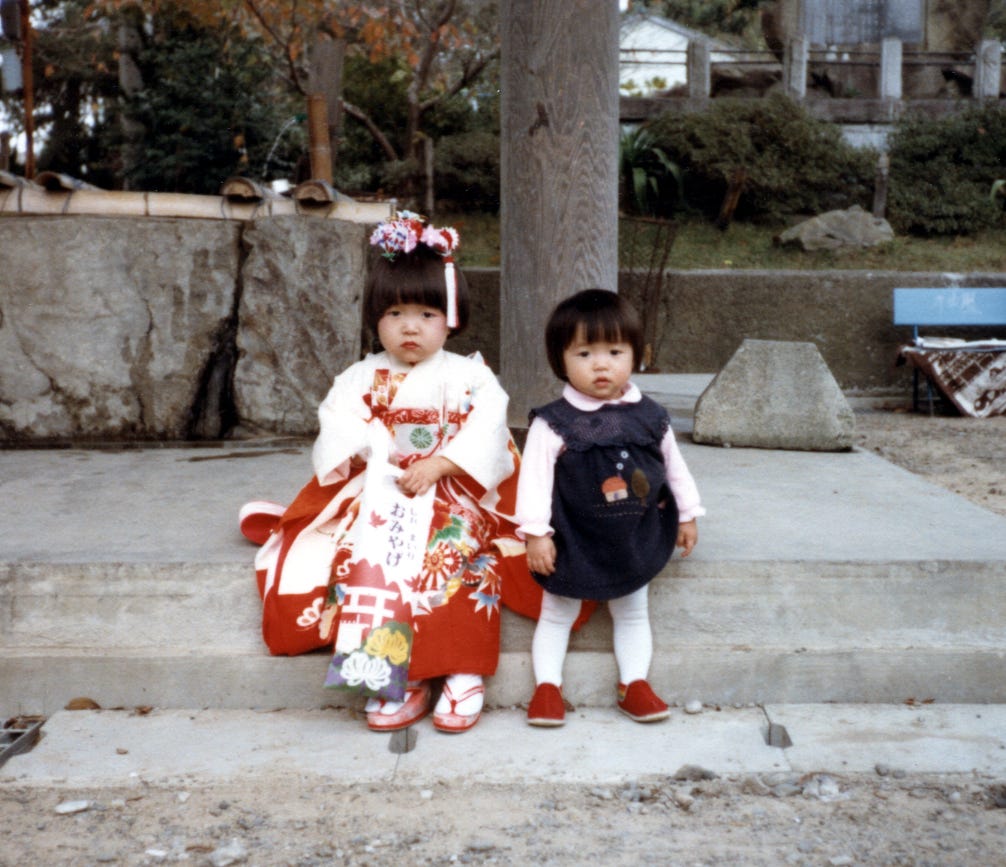ELEVEN QUESTIONS: Etsuko Nishimura 西村 英津子
Every time I face something challenging, I try to take on the challenge. Even if it doesn't work well, I get what I try in return.
impervious, adjective im·per·vi·ous | \ (ˌ)im-ˈpər-vē-əs \
Definition of impervious: not capable of being damaged or harmed. Not capable of being affected or disturbed.
Artist, educator and small-business owner Nishimura Etsuko answers Eleven Questions for Occasionally Impervious.

Etsuko is a Tokyo based artist.1 In addition to teaching English and Art to children, Etsuko owns and operates Telescope Tokyo, a boutique travel company.
1. What can you tell me about your given or chosen name?
I was named by a person who specializes in selecting a name based on the date of birth and the number of strokes used to write the characters in a name. It’s called seimei handan 姓名判断 and tied to the belief that the strokes in a person’s name can determine personality, health, fate and fortune. It’s similar to onomacy I think. It might sound strange to people who are non-Japanese, but it was quite common to work with a specialist in those days. These days, there are websites that calculate the best number of strokes. My husband and I used them when we chose our children’s names.
My father recently showed me the hand-written booklet given to my parents by the specialist who named me. It was my first time seeing it. He keeps it in the safe with other important belongings. In the booklet, there were calculations, fortunes, and other details along with three name options. I’m glad my parents chose 英津子 Etsuko. The kanji 英 E means excellent. Also, it is part of the kanji used in the word English. In Japanese, English is 英語 eigo. The kanji 津 tsu means port, where people gather, and 子 ko means child.
…the sound of my name is similar to “Let’s go!”
I like my name because I’ve loved learning English since I was small and I use it for my work as a guide and teacher today. I get to meet people from all over the world because of what I do. In order for English speakers to easily remember my name I tell them the sound of my name is similar to “Let’s go!” They get it immediately and then we start our adventure together.
2. Do you have a favorite book or story from your childhood?
I have so many favorite books from my childhood. I loved going to the library after coming back from elementary school. It’s hard to choose one! If it’s okay, I’d like to share a story book, not from my childhood, but one I read as an adult:100万回生きたねこ」“The Cat That Lived a Million Times” by Sano Yoko. My husband gave it to me when we were dating. We used to exchange story books as presents. 100万回生きたねこ is about an arrogant cat who is reincarnated over and over again until he can learn to love another more than himself. We have moved six times during our 22-year marriage, and this book has always been on our bookshelf. 📚
3. What are your favorite sounds? (If you are Deaf or hard of hearing, please share a favorite sensory experience of your choosing.)
It might sound weird, but I like the sound of the postman’s motorbike approaching before it stops in front of my house. When I was in middle school, I had two pen pals. I always looked forward to receiving letters from them. When I was growing up, having a pen pal was a popular thing. In the magazine I used to read, there was a page to find pen pals. I posted my name and address once and received so many letters! I exchanged letters for four years with a girl from Yamagata named Kanako. I also had a pen pal from New Zealand. I think I found her through an international pen pal organization. I remember writing letters to her with an English dictionary in my hand. One time I received a silver necklace with a kiwi bird charm inside the letter. I knew nothing about New Zealand, but I dreamed of visiting there one day, meeting my pen pal and seeing a real kiwi bird. I don't remember her name. I wish I did! I exchanged letters with her for about a year but I got busy when I entered high school and gradually, we lost touch.

4. What is your favorite thing to eat? Do you know how to make it? Who taught you?
My favorite food is kuri-kinton 栗きんとん, mashed sweet potato with sweet chestnuts. It is one of the traditional New Year dishes called osechi ryori おせち料理. I learned how to make it from my grandmother and mother. When my grandmother was still alive, she, my mother, and my aunt gathered together a few days before the New Year to make osechi ryori. I often went to help and got to taste everything. Each osechi dish has a meaning. For example, kuromame 黒豆 are sweet, simmered black soybeans. Beans are called mame 豆, but mame also means diligent. So we eat kuromame so that we can be diligent. Renkon 蓮根 is lotus root. For osechi we eat it sliced and simmered. Lotus root has lots of holes when you slice it and we eat it so that we can look through our future. But kuri-kinton is my absolute favorite. Kuri-kinton is yellow. We color it with gardenia fruit. It represents gold and wealth.
5. What is your favorite quote?
My favorite quote is 「歩歩清風起」(Hoho seifu okoru). 歩歩 means “walk” or “step”. 清風 means “fresh breeze”. 起 means “happen” or “appear.” It means that with every step you take, a fresh breeze appears. This quote teaches you to be sincere to yourself and to others, and to live mindfully. If you keep trying to be this way, the fresh breeze appears with each step you take. It is a good reminder for us to always choose the right thing. Every time I face difficulty, hoho seifu okoru reminds me to keep moving forward. I believe that by taking action and continuing to try, you meet great people and receive many wonderful opportunities. I would like to be the kind of person who can be like a fresh breeze to people, and who can always feel the fresh breeze on my face as I take each step in my life.
6. What is something that you used to believe but no longer do?
When I was little, I was really afraid of the Noh mask hanging on the wall of my grandfather’s room. I believed that if I made eye contact with her, she would come and get me at night when I was sleeping. When my family gathered at my grandparents’ house during the New Year holiday, all my cousins would play in my grandfather’s room but I would not join them. When my grandparents moved, I never saw the Noh mask again. I don’t know what happened to it. Every time I see a Noh mask at the shrine sale, it reminds me of those days. I wish my grandfather was still alive so I could talk with him. I would ask him about the mask, where it came from, and why he chose it to decorate his room.

7. What do you value most in a friendship?
I value a friendship in which we can support and learn from each other.
8. Where is home? If it is a physical place, does it still exist? Who lives there now?
I have called many places home. I have lived many places. When I was in high school, I lived in Burlington, North Carolina for a year as a Rotary Youth Exchange student. After returning from the United States, I graduated from high school in Tanabe City, Wakayama, my home town, and then moved to Kobe for university. After graduation, I worked for two years as an English teacher until I got married and moved to Seattle for my husband’s job. We lived there for seven years. We returned to Kobe, lived there for another three years, and then moved to Tokyo where we have been for the last 13 years. We will celebrate our 23rd anniversary this year, and have moved six times in the first 10 years of marriage.
Everywhere I have lived is an important part of me, but I am happy I can always go home to my parents’ house, in Wakayama. My parents still live there. All my family and relatives do as well. It is a beautiful place close to the beach, river, and mountain. I am happy I had a most wonderful childhood being surrounded by nature and people I love.

9. Who or what is your biggest motivator?
You might be a bit surprised but social media has been a good motivation for me. I started using it about 15 years ago. It plays a big role in being connected with people who are far away. My husband's family and my family use social media to see what I do, and to see how their grandchildren are.
I am still in touch with my best friend from high school in North Carolina and my good friends from Seattle. I am in touch with my former students, Tokyo friends who live abroad now, and clients who visited Japan. Many of my tour guide friends are on social media, and I get inspiration and receive advice from them. I post my artwork, and people give me words of encouragement. I have met several artists through social media, who I now know in real life. I love the feeling of staying connected.
10. What is one helpful piece of advice someone shared with you when you needed encouragement or a kind word?
After living only one year at a newly built house in Kobe, my husband got an offer to work in the Tokyo office. It was a good thing for my husband, and I never thought of not going, but I was so depressed. I had just made new friends and built a community in the new place. My kids and I were so comfortable there. I told him how sad I was and worried about moving to a totally unknown place. Tokyo people seemed so cold and unfriendly compared to Kansai people.
When I told my mother-in-law about my feelings, she told me that I should push myself and dive in. She told me that every time she was faced with two choices - a challenging path or an easy path - she always tried to choose the challenging path, and she gained so much in return afterward.
Her advice has proven true. I have lived in Tokyo for 13 years now and I enjoy what I do very much. I started teaching English to children, started a business, and started to paint. I’ve meet so many wonderful people from all over the world through what I do. I can't imagine a life without coming to Tokyo. I think I am living the best time of my life. Now, every time I face something challenging, I try to take on the challenge. And even if it doesn't work well, I get what I try in return.
11. When do you feel most impervious?
I am impervious to anyone challenging my desire to explore and be curious about the world.

Thank you Etsuko!
Psst! Want more Eleven Questions? Meet a culinary professional in New York City who knows a thing or two about the facts of life!





Really starting to see the power of the questions you’ve chosen to use in these Impervious 11 - #3 and #6 have become favorites from the series - but overall I really think it’s worth mentioning how well rounded an offering they make up. The answers, of course, are the juice but the questions are like fruit that was tenderly plucked after a natural growth on the trees. I guess I’m saying none of it feels contrived or forced and the range is dynamic. Can’t wait for future episodes - much love from a fan in Kamakura 🙌
I loved reading this, especially the part about the seimei handan! Such an interesting way to name your child.